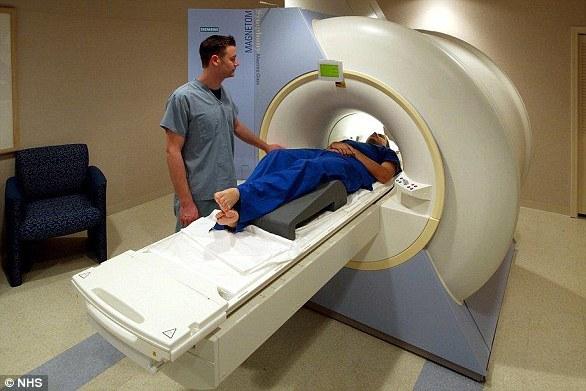MRI Innovation Makes Cancerous Tissue Light Up And Easier To See
- byDoctor News Daily Team
- 08 July, 2025
- 0 Comments
- 0 Mins

A new form of magnetic resonance imaging (MRI) that makes cancerous tissue glow in medical images could help doctors more accurately detect and track the progression of cancer over time.
The innovation, developed by researchers at the University of Waterloo, creates images in which cancerous tissue appears to light up compared to healthy tissue, making it easier to see.
"Our studies show this new technology has promising potential to improve cancer screening, prognosis and treatment planning," said Alexander Wong, Canada Research Chair in Artificial Intelligence and Medical Imaging and a professor of systems design engineering at Waterloo.
Irregular packing of cells leads to differences in the way water molecules move in cancerous tissue compared to healthy tissue. The new technology, called synthetic correlated diffusion imaging, highlights these differences by capturing, synthesizing and mixing MRI signals at different gradient pulse strengths and timings.
In the largest study of its kind, the researchers collaborated with medical experts at the Lunenfeld-Tanenbaum Research Institute, several Toronto hospitals and the Ontario Institute for Cancer Research to apply the technology to a cohort of 200 patients with prostate cancer.
Compared to standard MRI techniques, synthetic correlated diffusion imaging was better at delineating significant cancerous tissue, making it a potentially powerful tool for doctors and radiologists.
"Prostate cancer is the second most common cancer in men worldwide and the most frequently diagnosed cancer among men in more developed countries," said Wong, also a director of the Vision and Image Processing (VIP) Lab at Waterloo. "That's why we targeted it first in our research.
"We also have very promising results for breast cancer screening, detection, and treatment planning. This could be a game-changer for many kinds of cancer imaging and clinical decision support."
https://www.nature.com/articles/s41598-022-06872-7
Disclaimer: This website is designed for healthcare professionals and serves solely for informational purposes.
The content provided should not be interpreted as medical advice, diagnosis, treatment recommendations, prescriptions, or endorsements of specific medical practices. It is not a replacement for professional medical consultation or the expertise of a licensed healthcare provider.
Given the ever-evolving nature of medical science, we strive to keep our information accurate and up to date. However, we do not guarantee the completeness or accuracy of the content.
If you come across any inconsistencies, please reach out to us at
admin@doctornewsdaily.com.
We do not support or endorse medical opinions, treatments, or recommendations that contradict the advice of qualified healthcare professionals.
By using this website, you agree to our
Terms of Use,
Privacy Policy, and
Advertisement Policy.
For further details, please review our
Full Disclaimer.
Recent News
Private medical college moves Bombay HC seeking in...
- 07 November, 2025
Doctors move Health Ministry, MCC over procedural...
- 07 November, 2025
PG Medical Admissions 2025 registration begin in U...
- 07 November, 2025
NEET PG 2025 Counselling: Reopen registration port...
- 07 November, 2025
Daily Newsletter
Get all the top stories from Blogs to keep track.


0 Comments
Post a comment
No comments yet. Be the first to comment!